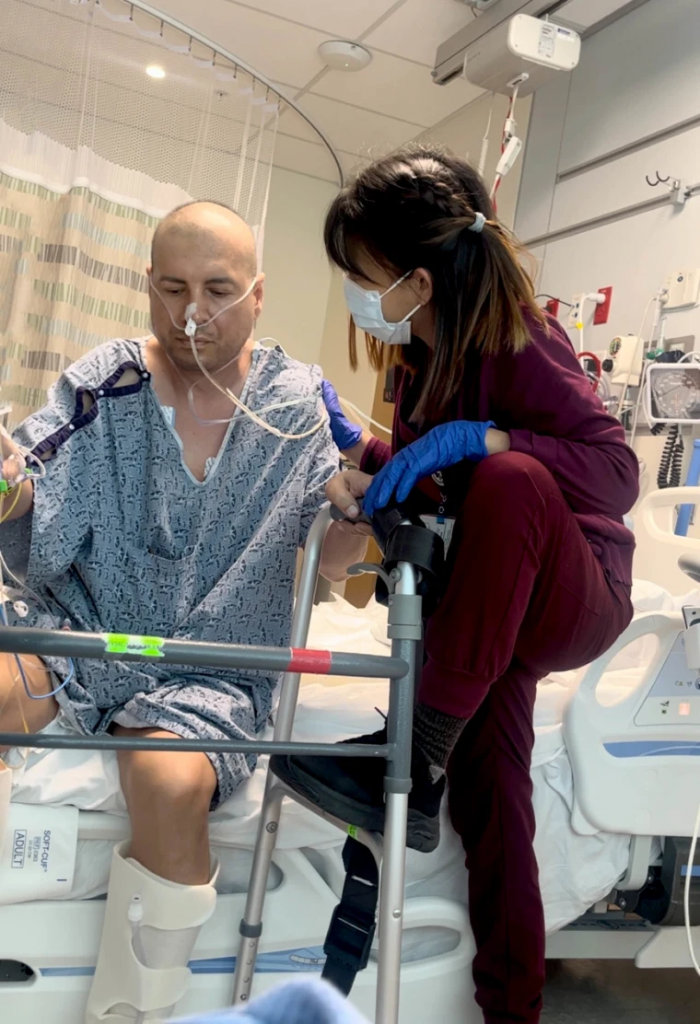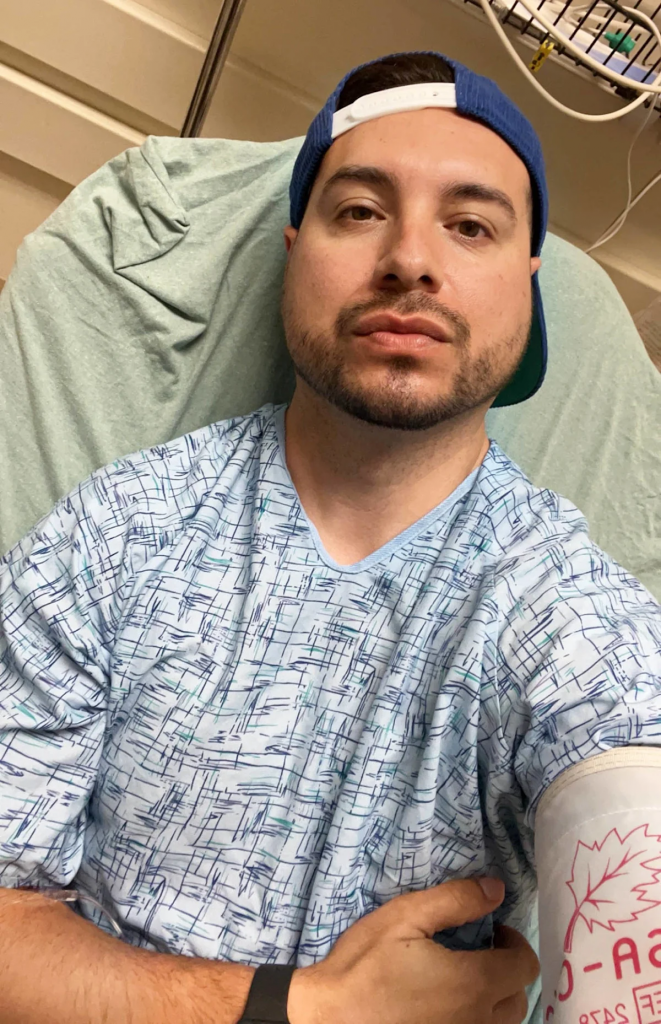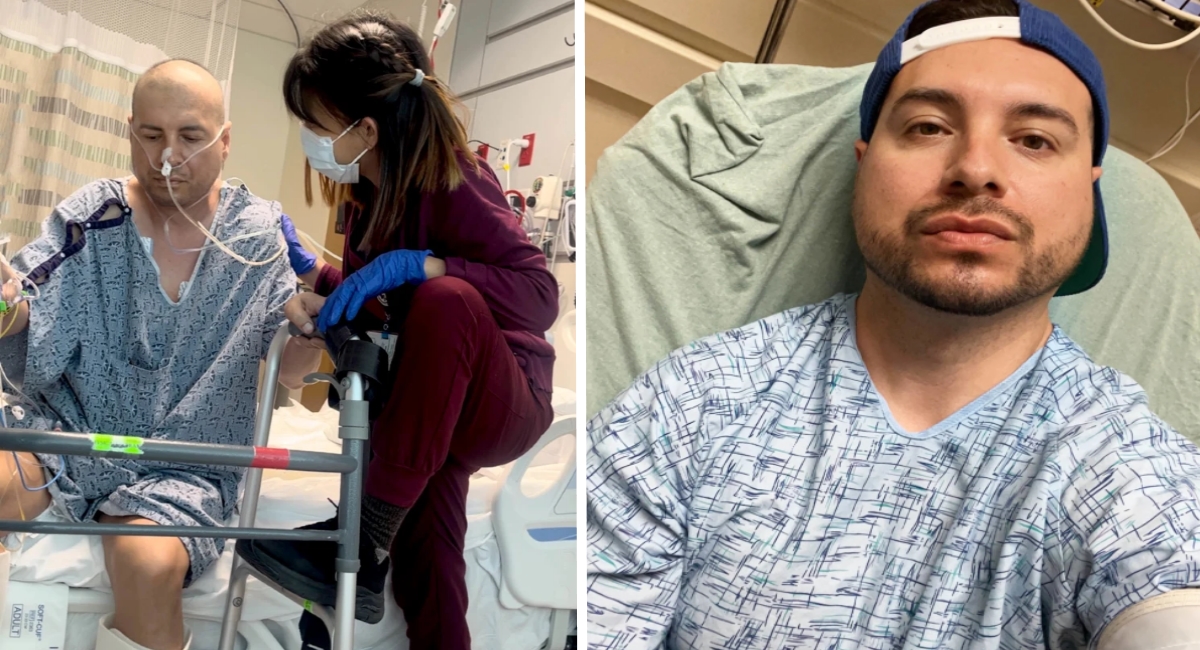He thought adopting a healthier lifestyle—gym three times weekly, balanced meals—was turning his life around. Instead, it was the subtle clue no doctor heeded. That small moment—the first hint that something was dreadfully wrong—was when he suddenly couldn’t swallow comfortably after meals. Mark Sevillano Jr., 41 and juggling parenthood and school, had just begun feeling better when this blocked feeling crept in, but his doctor stalled a swallow test for months, saying there was “no rush.” Only when he ended up in an emergency room did the diagnosis arrive: esophageal cancer. His story is now a stark reminder: don’t let subtle signs slip through the cracks as UNILAD recently revealed.
Mark told Today.com that two months after healthier routines began, swallowing liquids left him feeling like “something was stuck.” He pushed for testing, but was told it wasn’t urgent. Looking back, he said, “‘Wow, there are so many red flags.’” A trip to the ER changed everything—doctors discovered esophageal cancer fast. That masked early moment, easily dismissed as anxiety or indigestion, turned out to be the signal no one recognized detailed in the same UNILAD article.

Swallowing difficulty—known medically as dysphagia—is just one possible red flag. MD Anderson Cancer Center lists symptoms like persistent heartburn, chest pressure, hoarseness, unexpected weight loss, chronic cough, and hiccups among early signs that often get mislabelled as acid reflux or stress. That misdirection can delay critical diagnosis and treatment emphasized in MD Anderson’s symptom guide.
When he couldn’t swallow water, that was the moment alarm bells should’ve rung. Swallowing shouldn’t feel like a battle. https://twitter.com/SignalStudies/status/1690347829011— Signal Studies (@SignalStudies) August 15, 2025
Mark’s case is sadly far from unique. Baltimore firefighter Steve Dorsey suffered from mild swallowing problems he considered negligible until they escalated—and by Valentine’s Day 2025, he had Stage 4 esophageal cancer that had spread to his liver and lymph nodes. He called the initial symptom “benign,” a phrase that haunts every patient who hears their fears dismissed shared in his interview with People.
Another sobering example comes from a UK mother, Sibylle Schwarz, who initially brushed off her persistent cough as a nursery bug picked up from her children. Doctors told her it was nothing serious—but by the time she finally got diagnosed, her cancer was advanced and she was given just six to twelve months to live. Her story became a poignant warning about how subtle symptoms can be sidelined when they don’t fit a pattern reported in The Sun.
Esophageal cancer is relatively uncommon—accounting for only about 1% of U.S. cases—but it’s one of the deadliest, with a five-year survival rate hovering around 20% as noted in a gut doctor’s warning outlined in the New York Post. What’s chilling is that 30–40% of patients with acid reflux—the most common precursor to this cancer—never experience the classic heartburn symptom, making detection even trickier if you don’t know what to ask for.

Former patients weigh in, too. On Mayo Clinic Connect, one person recalled that their first symptom was a lost taste—coffee no longer tasted right. Months later, diagnosed with Stage 3 adenocarcinoma, they wondered if that subtle taste change had been the earliest whisper of trouble. Their experience underlines how symptoms vary—and why we must listen when something habitual suddenly seems off shared in a patient forum.
Another voice comes from Roswell Park, where J.T., a 39-year-old photojournalist in peak health, first noticed hiccups with every bite. That evolved to vomiting undigested food, then difficulty swallowing—yet he still didn’t suspect cancer until tests confirmed Stage 3 disease. His swift journey through radiation, chemotherapy, and minimally invasive surgery ended in NED (no evidence of disease), a story of urgency given clarity and fast care told through Roswell Park’s patient profile.
Hiccups after every meal? Could be cancer. My doc wrote it off until I couldn’t speak clearly. Follow that voice. https://twitter.com/BodyKitty/status/16902783412276— Body Insight (@BodyKitty) August 16, 2025
From risk factors to diagnosis, the medical picture of esophageal cancer is complex. As Wikipedia notes, danger zones include smoking, obesity, acid reflux, and Barrett’s esophagus. Symptoms can mimic GERD or common heartburn, which means many patients face delays as doctors investigate less lethal possibilities first outlined in a medical overview.
That mismatch between patient awareness and medical urgency is why early detection matters. MD Anderson emphasizes symptoms that won’t quit: painful swallowing, chest or throat pressure, chronic cough, unexplained weight loss—especially when they resist treatment. They urge not brushing away persistent signs, even if they don’t feel dangerous at first in their health resource.
For patients, the takeaway is simple but potent: trust your instincts. If something—anything—feels abnormal, especially with eating or swallowing, don’t let it get labeled as holiday stress, reflux, or even being on a diet. Be your own health watchdog. Push for testing or specialty referrals. As Sibylle says, “You always have to be the bad patient and push”—a mantra worth repeating when symptoms stick in her survival story.
Thankfully, advances in treatment offer hope. Whether surgery, chemotherapy, radiation, or newer targeted therapies—each tool adds time, possibility, and survival. Survivors like J.T. and Peter Markham show that even rare cancers can be beaten—or at least mastered—with determination, timely care, and community support. Peter, who cleared cancer a decade ago, still teaches and writes today, driven by gratitude for each breath in his reflective survivorship story.
Mark Sevillano Jr.’s warning echoes forward: “I’ve never even said the word esophagus. It wasn’t on my radar at all.” Let that lift your awareness. That strange throat prick, persistent soar, or slow-eating meal could be your body’s way of telling you something. Doctors are doctors—but you know your body. This was a cancer that can kill quickly; early action can save lives.






